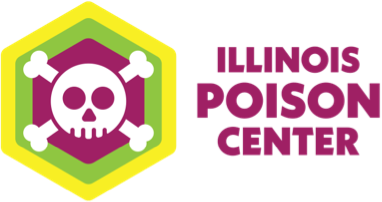Mosquitos
As the medical community and the public learn more about the mosquito-borne Zika virus, experts at the Illinois Poison Center (IPC) remind Illinois residents to protect themselves against mosquito bites each summer. Although mosquito-borne transmission of Zika virus has not been reported in Illinois or the continental U.S. to date, mosquitoes can transmit other diseases, including West Nile Virus. The virus has already been identified in 18 Illinois counties so far this year, underscoring the importance of taking steps to avoid exposure to mosquitoes carrying the disease.
To stay safe and have fun this summer, follow the three R’s: Reduce, Repel and Report.
Reduce exposure to mosquitoes.
- Avoid being outdoors when mosquitoes are most active, typically at dusk and dawn;
- Make sure doors and windows have tight-fitting screens, and repair or replace screens that are damaged with tears or other openings;
- When outdoors, wear long pants and long sleeve shirts to limit the amount of skin that is exposed to mosquitoes; and
- Eliminate mosquito-breeding areas around the home by removing standing water from gutters, wading pools and potted plants.
Repel mosquitoes with insect repellent.
- Wear clothing treated with an insecticide called permethrin, a common ingredient in household insect killers;
- Use insect repellent that includes DEET, picaridin, oil of lemon eucalyptus or IR 3535;
- Concentrations of up to 30% DEET have been shown to be safe for use on children older than two months;
- Products with higher concentrations of DEET repellant do not provide more effective repellency, but instead provide a longer period of repellent action;
- For all repellants, read the label instructions on how often to apply;
- Apply only to skin or exposed clothing, not underneath clothing;
- Do not use repellant on open wounds, cuts or irritated skin;
- Do not apply to eyes or mouth;
- When using a spray, do not spray onto the face, but instead, spray onto hands and then rub onto the face; and
- After going indoors, wash off skin with soap and water.
Report areas where mosquitoes breed. In communities that have mosquito control programs, report areas of stagnant water, like roadside ditches and flooded backyards, to the local municipal government.
The IPC handles calls on mosquito bites, misuse of repellants and much more.
Alphaviruses
Alphaviruses are viruses that attack the brain. There are three main types: 1) eastern equine encephalomyelitis (EEE); 2) Venezuelan equine encephalomyelitis (VEE); and 3) western equine encephalomyelitis (WEE).
Outbreaks of alphaviruses usually occur in the summer. A person can come into contact with an alphavirus by being bit by a mosquito.
Please note: Just because you come into contact with an alphavirus does not mean you will get sick from it.
Most infections with these viruses produce a fever, headache and muscle pain. Severe headache, stiff neck, confusion, seizures, coma and possibly even death can occur.
EEE, the most serious of the infections, has a high death rate (up to 35 percent). It also has a high rate of causing problems with the brain. VEE and WEE are less likely to cause brain-related symptoms. VEE has a death rate of less than 1 percent; WEE has a death rate of less than 3 percent.
There is no specific treatment or established cure for alphaviruses. Supportive care (intravenous fluids, medicine to control fever and pain) is the standard treatment.
There are vaccines available but there have been problems with their success. New vaccines are in development.
If you think that you or someone you know may have come into contact with an alphavirus, contact the local county health department right away.
If you or someone you know is showing symptoms of an alphavirus, call your health care provider or the Illinois Poison Center right away. The toll-free number for the poison center is 1-800-222-1222.
